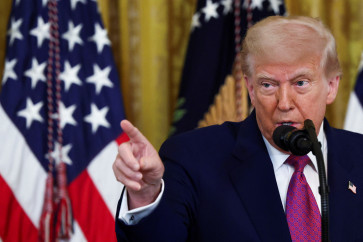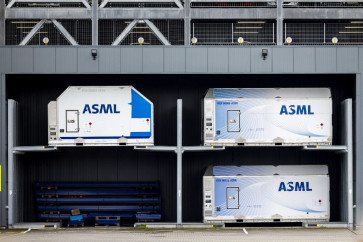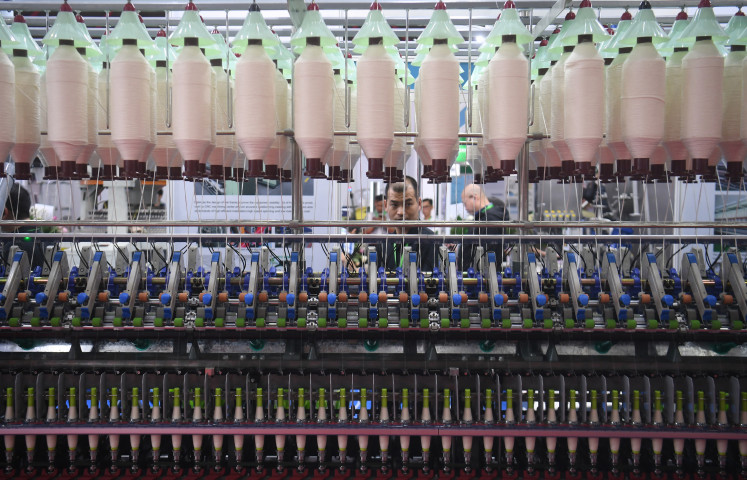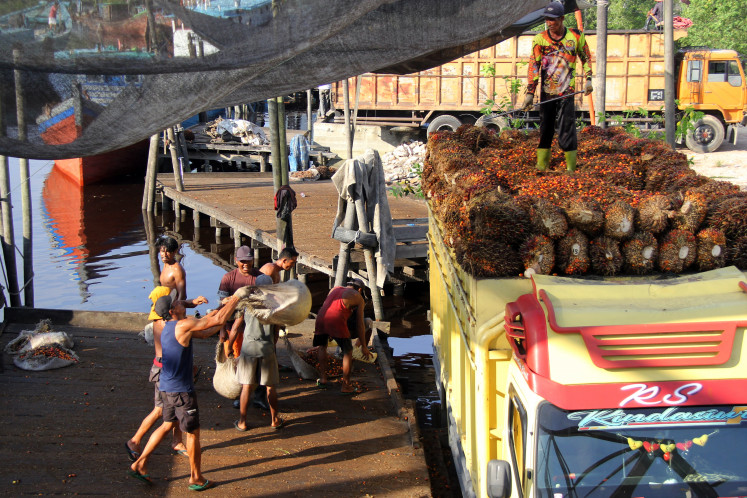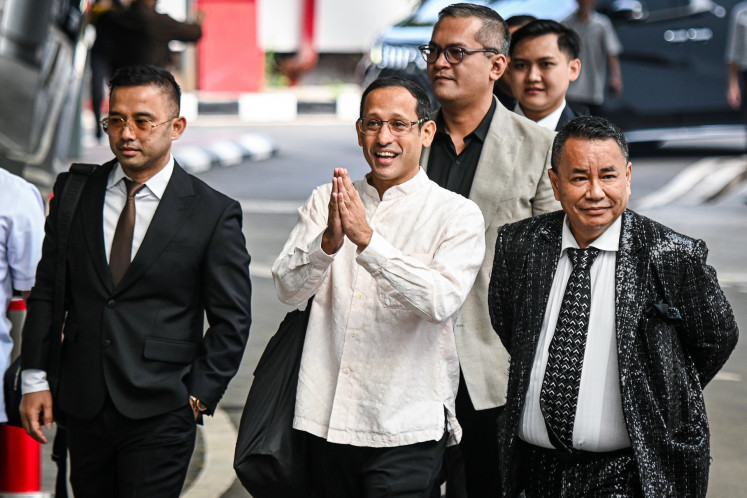Popular Reads
Top Results
Can't find what you're looking for?
View all search resultsPopular Reads
Top Results
Can't find what you're looking for?
View all search resultsTII's integrity pact faces both acceptance and resistance
Transparency International Indonesia (TII) released the results from their corruption perception index last week, which saw business communities name the police force the most corrupt state institution in the country
Change text size
Gift Premium Articles
to Anyone
Transparency International Indonesia (TII) released the results from their corruption perception index last week, which saw business communities name the police force the most corrupt state institution in the country. The anti-graft watchdog is currently promoting an integrity pact among public officials, businesses and those involved in contract projects at government agencies to combat corruption. The Jakarta Post's Dicky Christanto interviewed TII program manager Heny Yulianto and project officer Jonny Oeyoen about this issue in Jakarta last Friday.
Question: In what situation does corruption occur the most in Indonesia?
Heny: According to the most recent TII reports, the process behind organizing contracts for the purchase of equipment is the most susceptible to corrupt practices. Up to 40 percent of corrupt activity that occurs in Indonesia is linked in some way with procurement projects.
In 2003, TII began adopting the integrity pact program which is designed to assist government officials in avoiding corruption in these contracts by allowing the public to directly monitor the whole process.
*The integrity pact program costs between Rp 500 and Rp 800 million, with most of the budget being used to finance dozens of introduction seminars and workshops. While it varies from region to region, usually it takes months of deliberation and education before both the local administration and businesspeople agree on the specifics of the program*.
Jonny: We receive funding from many partner organizations and governments worldwide who share our concern over corruption. Several local administrations have also donated significant amounts of money to this program.
Was anyone interested in the idea?
Heny: To our surprise, in 2003 then West Sumatran regent Gamawan Fauzi offered his regency, Solok, to be the first area to test the program. While Fauzi was relatively willing to help get the idea of an integrity pact off the ground, we faced some resistance.
What kind of resistance?
Jonny: At first we organized a meeting with officials and businesspeople involved in procurement projects. The meeting was aimed at introducing the idea of an integrity pact and how it could bring about maximum long-term benefits for both citizens and officials. But fairly quickly we were hit with some surprising questions. It turned out that both the officials and local business communities suspected us of having some hidden agenda behind the project. They scrutinized our position, inquiring as to what our backgrounds were and what benefits we stood to gain from the project. Soon enough we were receiving death threats, our cars were targeted by rocks and our tires mysteriously deflated.
Heny: There were also some officials who admitted to receiving bribes from their superiors during past procurement processes, but said they were powerless to resist it. Such action, they argued, would have been seen as insolent and impolite and would have threatened their careers as civil servants.
What did you do to convince them?
Heny: Well I warned them that what they had done in the past -- receiving bribes -- was still recorded somewhere in their offices and could be easily be leaked to the KPK (the Corruption Eradication Commission) when it needed evidence. Nobody wants to end their career by freezing to death in prison and shaming their family. Large-scale media coverage of key cases at the KPU (General Elections Commission) involving procurement projects helped us explain how dangerous the situation really was.
And it worked. The officials and businesspeople began allowing me to guide them through the rest of the process. Soon enough, they were beginning to conduct their contract processes for obtaining equipment in a transparent manner.
What happened next?
Heny: To cut a long story short, we managed to encourage both officials and businesspeople to sign the pact, then we held a plenary meeting at the regent office hall with civil representatives.
Did the program end there?
Heny: No, actually that was only the beginning of the whole idea. After signing the agreement, we organized a joint committee comprising of many local anticorruption bodies both from the local administration and civil groups. The committee was responsible for monitoring every procurement process very closely.
Currently there are 25 regencies and municipalities that have signed integrity pacts. While some of them, including the Dharmasraya regency in West Sumatra and the Banjarbaru regency in South Kalimantan, have been successful, none of them could be a role model for a stance against corruption.
Heny: We also understand that some regencies may be joining the pact in an attempt to cover up the tracks of past corrupt activities they have been engaged in. Also, despite all our efforts, some regencies like Banten and Lampung continue to strongly resist the proposition of joining the pact.



